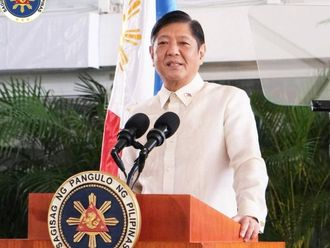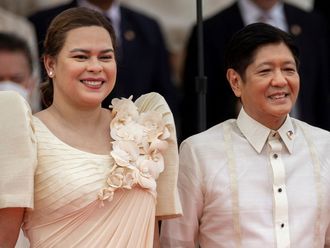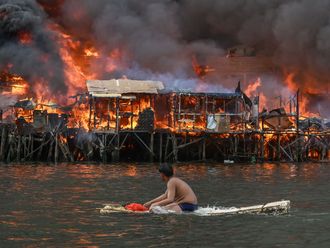Manila: President Benigno Aquino pushed for a worldwide investment from development countries so that developing countries can shift towards renewable energy from fossil-based sources of power, to help avert climate change.
Aquino wasspeaking at the United Nations Climate Summit in New York.
“I believe the challenge before us is to innovate on ways in which the transfer of useful technology and the building of climate-smart infrastructure might be achieved under a global unity of effort,” the Philippine leader said .
“We have never lacked the resolve, for example, as regards transitioning towards less traditional sources of energy. What we lack is the access to technology, financing, and investment that would allow us to accelerate our strategy,” Aquino said.
Noting that the Philippines is on a “climate-smart development pathway”, Aquino said the Philippine Congress had passed its Renewable Energy Act in 2008.
“We continue to take steps to maintain and even improve our low-emission development strategy and the trajectory of our energy mix,” Aquino said.
But much needed radical moves like investments must come from developed countries, Angela Ibay, climate and energy programme director of World Wide Fund (WWF) for Nature-Philippines told Gulf News in Manila.
“Governments and financial institutions must increase investments in renewable energy to $40 billion [Dh146 billion] by 2015,” she added.
The Philippines, in particular, needs $12.4 billion over the next 16 years after its department of energy pledged to increase the Philippines renewable energy capacity from 5,400 to over 15,000 megawatts, Ibay said.
Citing lack of financing and technology for renewable energy, the Philippine government has approved the construction of no less than 20 new coal-plants which will begin operating in 2020. Although a world leader in geothermal energy, the Philippines has yet to tap solar, wind, mini hydro, modern biomass and ocean technology as sources of power.
Noting this, Ibay said: “We call on governments and business leaders to disinvest from carbon-intensive fossil fuels and to shift to renewable sources of clean energy. It’s time for world leaders especially from countries which emit the most carbon — to seriously commit to reducing emissions and scale up financial support for vulnerable countries to show that they truly mean business.”
“Climate mitigation looks at the reduction of global carbon emissions by shifting to renewable energy sources plus energy efficient practices and technologies,” explained Ibay, adding that her group’s two-pronged solution to avert climate change must be adopted worldwide.
Anna Abad, a climate justice campaigner for Greenpeace Philippines, also said that President Aquino’s ongoing request for emergency power from Congress for more power production must be used to “remove obstacles to the mainstreaming of renewable energy in the Philippines”.
In his speech at the UN, Aquino said gas emissions from developed and industrialised countries were the source of climate change, one symptom of which is increasing intensity of storms and typhoons that have hit the Philippines — such as the four-grade Typhoon Haiyan that killed almost 7,000 displaced 15 million and left six million jobless in central Luzon in
November 2013.
“It would not be an exaggeration to say that Filipinos bear a disproportionate amount of the burden when it comes to climate change,” said Aquino.
French President Francois Hollande pledged $1 billion (Dh3.67 billion) in the coming years to help developing countries to invest in green energy. Stressing a much needed radical move from developed countries, Hollande added that other developed countries must follow suit.
This helped jump-start one of the ambitious aims of the UN summit which is to increase international funding and help developing countries go into renewable energy and help avert climate change.
More than 140 countries joined the UN Climate Summit to agree on how to reduce carbon emissions; limit the rise in global temperature to less than 2 degrees Celsius; and end global deforestation.











